Kent State’s women discuss breaking gender bias
March 8, 2022
The hustle and bustle of Kent State’s campus is well known to many students. They have heard vibrant conversations while waiting for coffee at Starbucks or laughter from classmates as class is about to start.
Yet, many students do not hear the women who spend their time working to make the world a better place on Kent State’s campus.
March 8, International Women’s Day, celebrates these dedicated women. This year’s theme is #BreakTheBias. The theme’s goal is to create a world free of discrimination, bias and stereotypes while creating a diverse, equitable and inclusive world.
Women who break the bias are at Kent State every day, walking the esplanade, going to class, working with students or sitting in offices.
Melody Tankersley – Provost
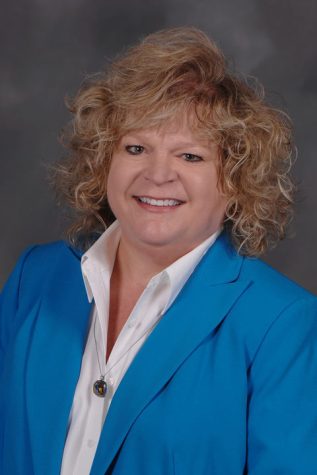
“Make sure you’re following your passion and be OK when your passions change too because that means your world is broadening up, and you’re seeing more that you can do and engage with,” Tankersley said.
While at Kent State, Tankersley held many different positions, but she currently serves as senior vice president, provost and her favorite position, professor.
“I’ve been fortunate to work with amazing people my entire life, and I’ve really tried to do the best job that I could do in all of the positions I’ve held,” she said.
Working with people helped her realize her passion for opening doors for other people and giving them the chance to make a difference in their lives and communities.
Yet opening those doors has not always been easy. Tankersley often gets stuck in a position where she has to make decisions that she knows others may not particularly like.
“For everything that we do, there are people who want to do it exactly the way we’re doing it, and there are people who want to do it in a different way,” she said. “You have to find a way to be comfortable with people not being happy about it.”
When making decisions, she always takes the time to consider others’ opinions and receive feedback, not just from administration but students as well.
“I want to make sure that I’m hearing from and giving voice to people who represent other groups than those who typically have a seat at the table,” she said.
One of the things she has learned, and her most significant piece of advice, is to be open to what you do not know.
“I can look out and see so many avenues for people to pursue as a career, to engage with, to have opportunities to learn from and just be open to those. Look beyond what your current goal is,” she said. “It’s a big world, and there are big ways to be engaged and to have a career.”
Taléa Drummer-Ferrell – Dean of Students
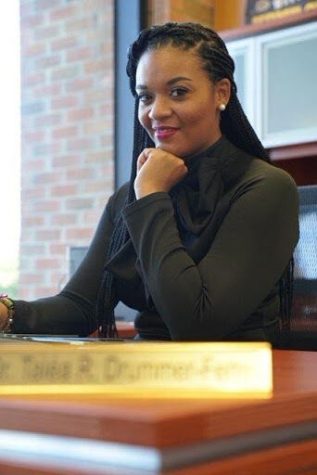
“I understand that in order for me to blaze a trail, so I’m not the last [black female dean of students] in this institution’s history, I have to make sure that I’m educating,” Drummer-Ferrell said. “ I am bringing my authentic self into the room.”
Drummer-Ferrell never thought she would be working in higher education but always knew she would get her doctorate.
“We had a dean of students at Miami of Ohio, and looking at her, watching her path, she was in so many different rooms and having ‘students’ in her title was kind of cool to me,” she said.
Seeing her previous dean’s work started her on the path to working in higher education, which led her to be the dean of students at Kent State.
“I’ve had the opportunity to be in rooms, and at first it was very uncomfortable,” she said, “but the influence that you can have in certain roles, … it’s such a responsibility and honestly, an honor.”
The honor of working in these influential spaces comes with hardship. Drummer-Ferrell oversees the protocol that is put in place when a student dies.
“It’s one of the very few rare times where our students don’t come first, our families do,” she said.
She spends time painting them the picture of how their student touched the university and leans into the light that brings.
“[They] see people care more than just our students being a number or any other thing less than what [they] really are,” she said.
Drummer-Ferrell’s advice is to go for every opportunity possible, even if it feels that not all of the qualifications fit.
“It’s time for us to stop trying to make sure that we are these perfect pictures, to make sure that we have everything right and letting all these opportunities go past us,” she said.
Chazzlyn Jackson – Student Body President for Undergraduate Student Government
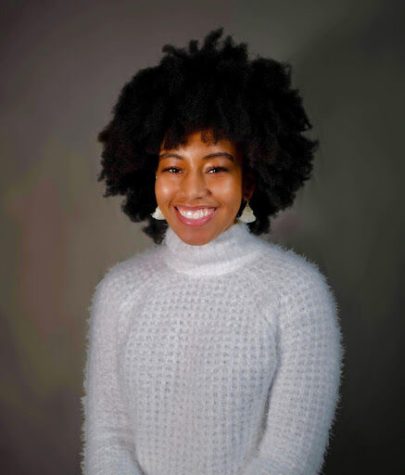
“When I continue to show up in these spaces, show up in my office, lead our public meetings, respond to administrators, respond to the student body, that itself is just challenging the implicit bias that people have against not only me as a woman but as a black woman,” Jackson said.
Jackson started her leadership journey as a cheerleader and a track team member when she was a seventh-grader. This start in leadership eventually morphed in high school where she became class president for three years and student body president for one.
“When I was growing up, … I understood that I had stigmas already on me, I already had stereotypes labeled on me,” she said. “What pushed me was just to laugh about it and be like, `Ah, love to prove you’re wrong every day.’”
What Jackson loves the most about her position as Kent State’s student body president is her peers’ trust in her.
“It should be common to trust your elected representatives, your leaders, whether they have a title or not,” she said. “You want your voice and your concerns to go to people that you trust, that will handle it and address it.”
Jackson still has imposter syndrome and overwhelming moments, but she overcomes it by being with people close to her.
“When I’m affirmed again that I am where I’m supposed to be, I am serving my students well because they trust me and they’re thanking me at the end of the day,” she said.
Her most important piece of advice is to lead with confidence and, more importantly, use that confidence to know that you may not know everything, and that is okay.
“Lead in your leadership style, be confident in who you are, how much you’ve grown, and never stop growing because you don’t know everything,” she said. “When you lead with that confidence … you’re going to be very open-minded to learning as you go and that is going to grow you both as an individual and as a leader.”
Eboni Pringle – Dean of University College
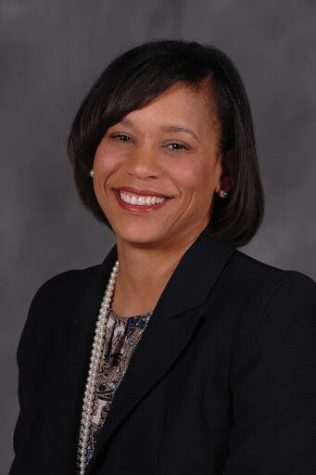
“I really consider my activism in empowering and educating others,” Pringle said. “I feel like I’m having an impact on cultural shifts and changes that need to be made.”
When Pringle started college, she attended Ohio University, and she did not let being a freshman stop her from reaching her goals.
She started a group called Bobcat Sisters and Brothers to help other Black students be successful. They had events for networking, study groups and guest speakers.
“Early on in my undergraduate career, I was attracted to those programs and resources that support students in their success,” she said.
Her attraction to these roles came from the joy she got from seeing students become more than they thought they could ever be.
“It’s amazing to me how many people don’t have confidence and their own ability and don’t truly know how powerful they are and can be,” she said. “When they recognize that, and they start living and embracing that, [it] just brings me so much joy.”
The bureaucracy that can sometimes block change is the hardest part of her role.
“Oftentimes, the work that I’m doing is working to address challenges and barriers that we have set up unintentionally,” she said. “I just wish sometimes that we can make things more simple for students.”
In order to overcome this, she reminds herself that these challenges that have been created were never intended to hurt others.
Her advice is to remember that your worth is more than a role or a job.
“Your power doesn’t exist simply because someone has granted you a certain role or a place within an organization,” she said. “Your power exists because you have the ability and avenues to be able to bring others together to make change.”
Leah Shaw – Director of Residence Life
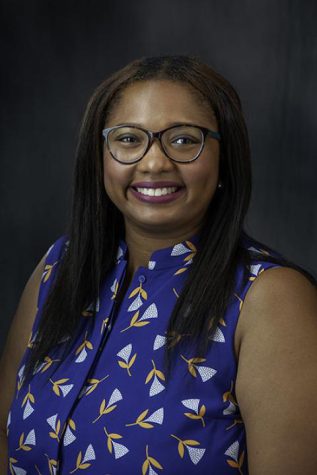
“I think to break the bias, you have to have a sense of awareness … that for me, most importantly, is making sure that I have a handle and awareness of the biases that I hold,” Shaw said. “Yes, I’m a woman. Yes, I’m a black woman. I still have biases.”
Shaw has seen a lot while working within housing departments at different universities. Yet, she did not always know that higher education was her calling.
“I’d probably be a principal … had I gone the career path that I wanted to go in,” she said.
She loves higher education because of the dual role of influencing and impacting others.
“I look for positions where I get both, where I’m able to implement something, whether it’s policy, whether it’s people, whether it’s culture, whether it’s environment, I like to be able to influence stuff,” Shaw said. ”Then, at the same time, I like to have an impact.”
One of the hardest things for her is that while she carries influence, she may be the villain to some people.
“I’ve gotten to the point where I’m okay with that because sometimes you need a person to put that on,” Shaw said. I’m okay with that being me when it’s necessary because I know that’s not the role I always play.”
One piece of advice she has is to “know your why.”
“Why are you a leader?” she said. “Your ‘why’ informs your motivations, it informs everything. If you don’t know what that ‘why’ is, I think it will hinder your effectiveness.”
The other is don’t put limits on what you can do.
“Don’t limit yourself, don’t shrink yourself. Get yourself to the place where you can show up in a room and bring everything that you are with you,” she said. “If people don’t like that, they have to figure that out.”
Meghan Factor-Page – Assistant Director of Kent State of Well-being
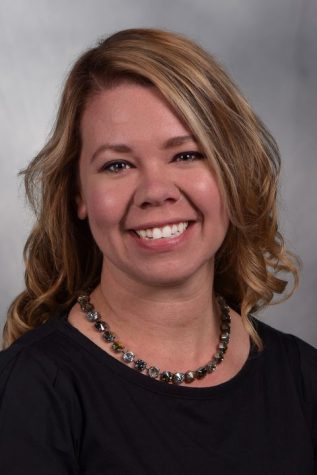
“As a woman, I face some disparities, but it doesn’t mean that I can’t lift others up too, because people have opened doors for me as well,” Factor-Page said.
Factor-Page has worked within many higher education sectors. She studied school health education as an undergraduate student, and during her time in undergrad, she worked in different leadership positions, which eventually led to her going into higher education.
She worked for Student Success Programs and then moved to the Center for Student Involvement before working for Kent State of Well-being.
“I’ve always been kind of linked in with the wellness aspect of it, the well-being aspect because I like helping people, but I also think that health and well-being can be intimidating to people,” she said.
Working in all of these positions has given her the chance to help orient people to new things, coach them through new things and help them better themselves, which she loves. Yet there is bad with the good.
“I really strongly care about people, and when people are struggling, I kind of can’t carry that weight around with me and carry it home,” she said.
To rise above the hardships, Factor-Page attempts to set different boundaries. She tries to stay off her phone at certain times and do fun activities that distract her.
Her most significant piece of advice is to not get in the way of yourself.
“Imposter syndrome is real, and quite often, whatever you’re thinking about yourself, other people are probably not thinking that,” Factor-Page said. “Thinking, ‘I’m not qualified for this’ … that’s usually just you in your brain.”
Hailey Mezurek – Graduate Assistant for Student Support Services
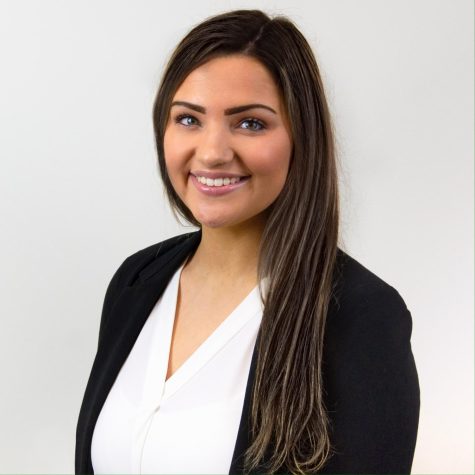
“Breaking the bias for me is exploring how my other identities interact with my womanhood and hold myself accountable for that,” Mezurek said.
Mezurek’s journey into being a leader started in high school when she took a service-based leadership class. As an undergraduate student, she was a Peer-Leader Trainer, Resident Assistant and Student Success Leader.
Her favorite thing about being in leadership positions is the mutual exchange of knowledge.
“Even if I have formal positions or titles, I learned so much from each different person I encountered, mentored and worked alongside,” Mezurek said. “I feel like, even if I’m in a position where I’m technically supposed to be teaching other people, I learned just as much, if not more, from them.”
The hardest thing for Mezurek is dealing with the emotional weight of being a leader.
“I’m 100 percent invested in the people, and I don’t mind doing that,” she said.“ I think it took me a long time to learn that when I go home, or when I step out of meetings, I can care for people without carrying the weight of all the things they’re going through.”
Her most important piece of advice is not to let yourself fall into pre-made boxes if you do not feel that you fit into them.
“Don’t fall in that box of, ‘Oh, it’s so nurturing, I’m the mother hen of my class.’ You don’t have to be that to be a good female leader,” she said .“It’s okay to be the other things. You can have the assertive, ‘more masculine’ leadership style.”
Katherine Masko is a reporter. Contact her at [email protected].











